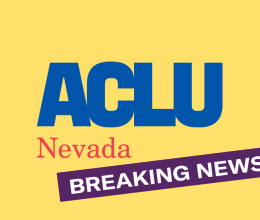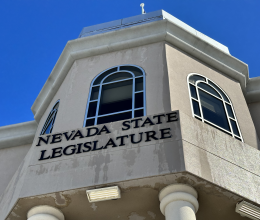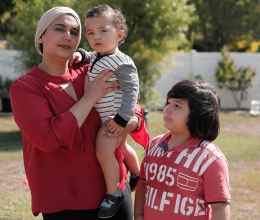By Ian S. Thompson, ACLU Washington Legislative Office
On election night, voters in Boulder, Colorado delivered a critical win in the fight for housing justice. By a margin of 59-41 percent, voters passed No Eviction Without Representation (NEWR) — a critical measure that will ensure all Boulder tenants who are facing the terrifying, complex process that is an eviction proceeding will be provided with free legal representation. NEWR also establishes a rental assistance fund and an education process that will notify Boulder renters of their housing rights.
Protections like those afforded by NEWR are always important, but they are particularly crucial in the midst of a devastating global pandemic. The economic consequences of the pandemic have cost millions of people across the country their jobs and the ability to pay the rent — leaving millions of renters with the added threat of eviction and losing their homes.
The odds are stacked heavily against tenants who are taken to eviction court. Less than 2 percent of renters in Boulder who are summoned to court are able to find or afford legal representation. This is not surprising considering many are facing eviction because of unforeseen circumstances or financial stress that prevents them from being able to afford their rent. Meanwhile, the vast majority of landlords are armed with legal representation and the protection of professional organizations that lobby on their behalf. Many renters don’t even get to the courthouse because of the severe financial burdens they already bear.
With the passage of NEWR, Boulder becomes the seventh city in the country with a right to counsel program. Other cities that have adopted right to counsel measures in eviction proceedings — including New York City and San Francisco — have seen reductions in evictions. In securing a universal right to counsel in eviction proceedings, NEWR will ensure that renters have the tools and knowledge they need to safeguard their housing rights and help balance power between landlords and tenants.
Where does the fight for housing justice in the form of right to counsel head now?
On Tuesday, the Baltimore City Council will hold a hearing on a right to counsel bill. Passage of this legislation is critically important. Baltimore currently has one of the highest eviction rates in the United States. Approximately 70,000 eviction orders are issued in Baltimore every year, resulting in thousands of evictions. Unsurprisingly, 96 percent of landlords are represented by a lawyer in eviction cases in the city while the same is true for just 1 percent of renters. A recent report found that a right to counsel program like NEWR in Baltimore could cut evictions by 92 percent. Furthermore, the report estimates that every dollar Baltimore spends on providing free legal representation in eviction cases would result in more than $3 in savings on social safety net resources.
Ending mass evictions is a key racial and gender justice priority. Due to decades of inequalities in our housing system, communities of color and low-income women feel the impacts of eviction the most — Black women in particular. The numbers say it all: Black women are more than twice as likely to have evictions filed against them as white people. Less than half of Black and Latinx families own their homes compared to 73 percent of white families. Longstanding systemic income and wealth inequality also put communities of color at higher risk of eviction.
The harms of eviction also run deep — having an eviction on your record can make it difficult to secure future housing since some landlords will not consider a prospective renter with a past eviction. Eviction marginalizes and stigmatizes already vulnerable groups with limited financial means.
With the federal eviction moratorium set to lift before the end of the year and no federal emergency rent relief in sight, it is paramount for Congress, states, and cities to act. As the voters of Boulder showed us on Election Day, right to counsel programs are one important step that can be taken to keep people in their homes. We need action to stop mass evictions during the pandemic and beyond. All people — regardless of their circumstances or background — should have access to safe and stable housing.








